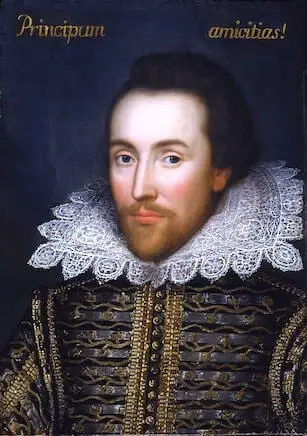‘The be all and end all’ was coined by William Shakespeare in Macbeth, 1605. The bard gives these lines to Macbeth, when he is contemplating assassinating King Duncan of Scotland and taking the throne for himself.:
If it were done, when ’tis done, then ’twere well
It were done quickly. If th’ assassination
Could trammel up the consequence, and catch
With his surcease, success: that but this blow
Might be the be-all and the end-all
As anyone who knows the play’s plot will be aware, things don’t turn out quite so simply for Macbeth and the murder is far from being the ‘end all’.
In everyday speech we now use the expression ‘be all and end all’ less so than in the past, but it hasn’t become archaic quite yet.

